diving into the umpteen stories of the wreck, and the mythology of the truth
Last weekend, twice, I saw my boyfriend's production company put on After Ashley by Gina Gionfriddo. It's an often over-the-top play, where I was trying to catch up with the plot, and sometimes it was hard to take the relationships in it seriously because there was this backdrop of absurdity, but there's a moment near the end that struck me both nights. It was this moment when Justin, trying to rectify what he sees as a false image of his murdered mother, quotes Adrienne Rich's poem "Diving into the Wreck." He says he wants to show "the wreck" and "not the story of the wreck," and reads a passage from tehpoem that includes these lines: "the wreck and not the story of the wreck/the thing itself and not the myth" and then proceeds to serve up a videotape as evidence that the story being put forth is false, and his is real, true, honest.
I don't know enough about the poem or poetry in general to do the poem justice, but I couldn't get that image out of my head, nor the idea that any of us can separate ourselves from our story, which is really "stories," that there is ever "the thing itself" sans mythology. Please show that to me, that person or thing or place that exists without a story, without a mythology built up around it. Of course I understand his impulse; he wanted to right what he saw as an injustice, an untruth, and I don't mean to imply that he was making something up. But the idea that because you have a history, a memory, or a tangible item, like a videotape, and that therefore you are free of mythology, free of the framing of the story, is, to my mind, false.
I thought about so any stories I've told myself, about my body, my heart, my home, my relationships. I would imagine that Rich would agree, given this bit from her poem "On Love:"
An honorable human relationship-- that is, one in which two people have the right to use the word "love"-- is a process, delicate, violent, often terrifying to both persons involved, a process of refining the truths they can tell each other.The story of the wreck, which, again, is an ongoing one, especially when it comes to our fellow humans (and ourselves), is indeed a constant refining. It's informed by so many things, and the idea that we know someone else, whether they are dead or alive, in the best and clearest and most correct way, is one that is easy to be seduced by. Who wouldn't want to claim that they have this clear insight, this omniscient vision of "the wreck?" I thought of that when I read the Wired cover story that purported to be about Steve Jobs, but was much more accurately about Steve Jobs, the Walter Isaacson biography. Indeed, Isaacson is interviewed as are many businesspeople who've read his book. This same assumption Justin makes in After Ashley is right there in the title of Ben Austen's story: "The Story of Steve Jobs: An Inspiration or a Cautionary Tale?" (Italics mine)
I was fascinated by the way Isaacson's story was taken as fact, rather than a very popular 600-page biography informed by facts, but at the end of the day, a story. I almost wrote "like any other," which I admit isn't accurate; Isaacson had an immense amount of access to Jobs and those surrounding him. But the idea that he has written the forever definitive story, one that is so singularly truthful and decisive that no other even gets mentioned, is telling, even as the story purports to be about Jobs as multifaceted angel/devil.
It's been this wonderfully eye-opening lesson for me, to see where I am too much like Justin myself, where I want to fit people into the story I think they'd wear best, tailoring my own visions around them, rather than letting them dress themselves, shucking a coat here, wiggling into a pair of jeans there, coating themselves in all manner of disguises. Are their (dis)guises "true" simply because they picked them out of the closet? Not necessarily, but I also know that neither is mine; we are all entitled to our story, our viewpoint, no matter how much other people might disagree. There was a moment, when I wasn't blindfolded, during Taylor Mac's show on Monday night where he had an audience member come up and peel the liquid latex off his face, and it was hilarious but also shocking. You've started out in a mask--what else is artificial? All of this?
I am more cautious, in some ways, than I have ever been. I am always looking for the stories that aren't being told, the hidden language of silence, deliberate or not. I am looking for the stories of wrecks and successes in equal measure. I know that the stories we present, conscious or not, are just as important as the "truth," if such a thing exists. When I was in the middle of that spectacularly bad romance, I told myself the most vicious stories, ones that built me and that relationship up in ways that could only leave me with absolutely nothing. For a long, long time, I blamed other people for that failure, for my own lack of insight, for my lack of seeing what was literally right in front of me.
I was, in a word, angry. I hated that I was that fallible, that gullible, that stupid. I hated that part, in some ways, more than the hurt. I hated that I had fallen for my own mythology of what was happening. And it's not like all of a sudden I love that I did that, but I know it was something I had to learn from, knowledge that I could, hopefully, put to use in the future, to ask when I wasn't clear, to not elevate myself to that pedestal I'd put myself on, but also not let myself think so little of myself that I'd accept the things I did. It's more complicated than that, of course, and I think it would've been unfair in the thick of it to expect myself to see any more clearly than Justin. Do I sometimes wish I could go back and be different, better? Of course, but I also know that I was playing a losing game from literally day one. That story was right in front of my face, surrounding me, but I didn't want to see it, I pushed it away at every turn, shut anyone up who wanted to tell me their version of the truth of that story because I wanted to be special, exceptional, worthy. I don't want that any more, from that person, but it only takes an instant to embody that girl who did. I still have days when I wake up and think that maybe I could, I don't know, erase that history and hurt and indeed be worthy, for a few seconds, for the span of a conversation. Then I shake the silliness out of my head and proceed into real life, which is much messier than my flighty fantasies. There's a lot of be careful what you wish for in there too; fantasies are stories that can veer on dangerous.
That so-often fine line between story and truth, especially the ones we tell ourselves, is a space that fascinates me. I want to use it to learn how to undo some of the most damaging stories I've told myself; that I shouldn't bother starting, because I will fail, that I'm not worthy, because someone else decreed it, that the world is more limiting than limitless.
I think we all have, to one degree or another, a desire to control the story. It's a primal sort of self-protection, and I get it, I really do. Of course we want to dictate what others think of us, and in some cases, what others do. I am grateful that I am making hesitant, tiny baby steps toward recognizing that that's not something I can control. I still hate it, but I also know that the more you try to exert that iron fist of control, the more damage you do.
There have been so many times in the last year and beyond, specifically last week, where I was in such a dark place, I literally couldn't see anything else. Somehow, certainly despite myself, rays of positivity forced their way in, forced me to see that that dark story I was telling myself wasn't so much false, as temporary. Even if it's just a coping mechanism, a story I have to tell myself to get up in the morning, I do believe that every day is a new opportunity, not to undo the past, but to reframe the present, to live up to my own expectations for myself, and to force myself to keep looking for the false notes in the stories I tell myself. It makes teasing out the truth more challenging, to be sure, but I would like to think it makes me more empathetic, to be less like Justin, myopic in that search for justice, and more aware of the fact that even Ashley herself didn't have a monopoly on the "story" of herself. All we have is our own version, however twisted, subjective, loving, hateful, flawed and beautiful, that is.
Labels: Adrienne Rich, After Ashley, Ben Austen, biography, Chimera Productions, Diving into the Wreck, poetry, Steve Jobs, stories, theater, Walter Isaacson, Wired

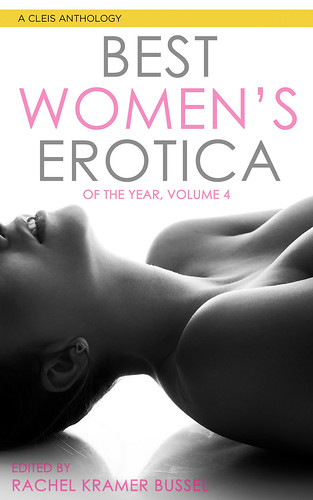

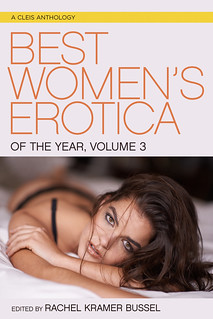
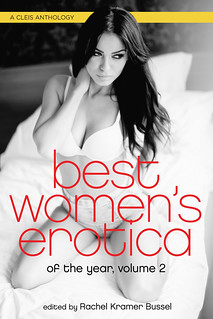

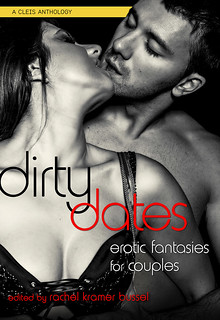

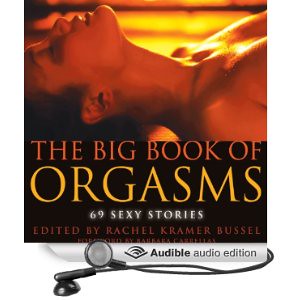
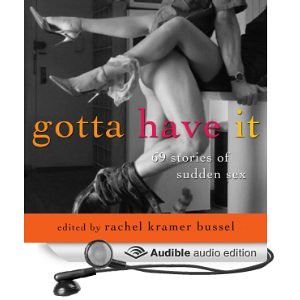
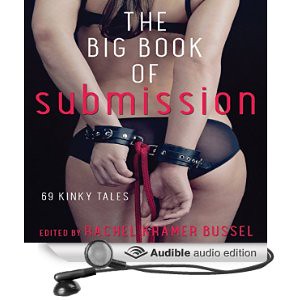 The Big Book of Submission: 69 Kinky Tales
The Big Book of Submission: 69 Kinky Tales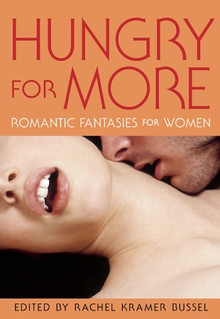
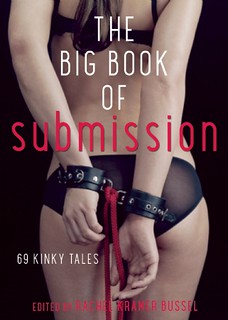
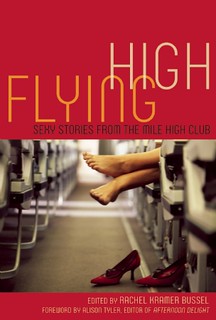 Flying High: Sexy Stories from the Mile High Club
Flying High: Sexy Stories from the Mile High Club
<< Home